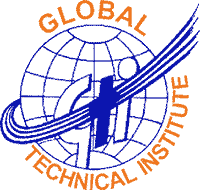How does an ECG Technician Training Institute emphasize the importance of practical training? In the ever-evolving healthcare sector, the role of ECG (Electrocardiogram) technicians has become increasingly vital. These professionals are responsible for conducting ECG tests, which help to diagnose heart conditions. To fulfill their responsibilities effectively, technicians should receive extensive practical training. Institutions like the Global Technical Institute, recognized as the best ECG Technician Training Institute in Kolkata, focus on integrating practical experience into their curriculum. In this blog, we explore the various aspects of practical training in ECG technician programs and their significance in shaping competent healthcare professionals.
Understanding ECG Technician Training
The role of an ECG technician is essential in modern medicine. These technicians operate ECG machines to record the electrical activity of the heart and help doctors in diagnosing heart diseases. The training involves learning about human anatomy, physiology, and the proper use of ECG equipment. It also requires knowledge of interpreting ECG results accurately. However, theoretical knowledge alone is not sufficient to excel in this field. Practical training is essential for developing the skills needed to perform these tasks efficiently.
The Significance of Practical Training
Practical training holds significant importance in healthcare education. It allows students to apply their theoretical knowledge in real-world scenarios, which enhances their understanding and retention of information. In the case of ECG technicians, practical training is critical because:
- Hands-On Experience: Students gain valuable experience by directly handling ECG machines and learning how to conduct tests properly. This hands-on approach cherishes a deeper understanding of the equipment and procedures.
- Real-World Skills: Practical training equips students with the skills needed to interact with patients, conduct tests accurately, and manage potential complications during procedures. These are essential for patient safety.
- Immediate Feedback: During practical training, students receive feedback from instructors and healthcare professionals. This immediate feedback helps them improve their techniques and build confidence in their abilities.
Also read: Best ECG Technician Training Institute in Kolkata
Components of Practical Training at ECG Technician Training Institutes
- Simulation Labs:
One of the primary components of practical training at an ECG Technician Training Institute is the use of simulation labs. These labs are equipped with state-of-the-art ECG machines and simulation technology that allows students to practice their skills in a controlled environment. In simulation labs, students can:
- Familiarize themselves with ECG equipment.
- Practice various techniques without the pressure of real-life patient scenarios.
- Learn to troubleshoot issues that may arise during ECG tests.
- Clinical Rotations:
Clinical rotations provide students with the opportunity to gain hands-on experience in real healthcare settings. During these rotations, students work alongside experienced ECG technicians and other healthcare professionals. This exposure helps students:
- Understand the workflow of a medical facility.
- Develop their patient interaction skills.
- Observe and participate in the process of conducting ECG tests on patients.
- Internships and Fieldwork:
Internships and fieldwork are integral parts of ECG Technician training. Students are placed in hospitals, clinics, or diagnostic centers to gain practical experience. During internships, students:
- Apply their skills in real-world scenarios.
- Work with patients, providing valuable support to healthcare teams.
- Gain insights into the day-to-day responsibilities of ECG technicians.
Benefits of Emphasizing Practical Training
- Enhanced Skill Development:
Practical training significantly enhances skill development. Students learn to operate ECG machines proficiently, interpret results accurately, and ensure patient comfort. These skills are important for building a successful career as an ECG technician. - Increased Confidence:
As students engage in practical training, they become more confident in their abilities. Working with real patients and receiving constructive feedback helps them overcome their fears and insecurities. This increased confidence translates into better performance in their future roles. - Improved Job Readiness:
Employers value graduates who have undergone comprehensive practical training. Students who have completed their training at an ECG Technician Training Institute, especially one like Global Technical Institute, are often more prepared for the demands of the job. They possess the necessary skills and knowledge to contribute effectively to their healthcare teams from day one.
Case Studies and Testimonials
The success of practical training at ECG Technician Training Institutes can be seen in the stories of graduates. Many former students of Global Technical Institute have shared their positive experiences. The hands-on experience during the clinical rotations prepared them well for the job. At Global Technical Institute they provide live cast studies examples and Testimonials So, that their student will be well-knowledgeable for the real world. This is some feedback from their students.
Conclusion
In conclusion, the importance of practical training in an ECG Technician Training Institute cannot be overstated. With the right blend of theoretical knowledge and hands-on experience, institutions like Global Technical Institute provide aspiring ECG technicians with the skills they need to excel in their careers. From simulation labs to clinical rotations and internships, the comprehensive practical training offered at these institutes ensures that graduates are well-prepared to meet the challenges of the healthcare field. As the demand for qualified ECG technicians continues to grow, investing in a solid practical training program is essential for anyone looking to build a successful career in this vital area of healthcare.














